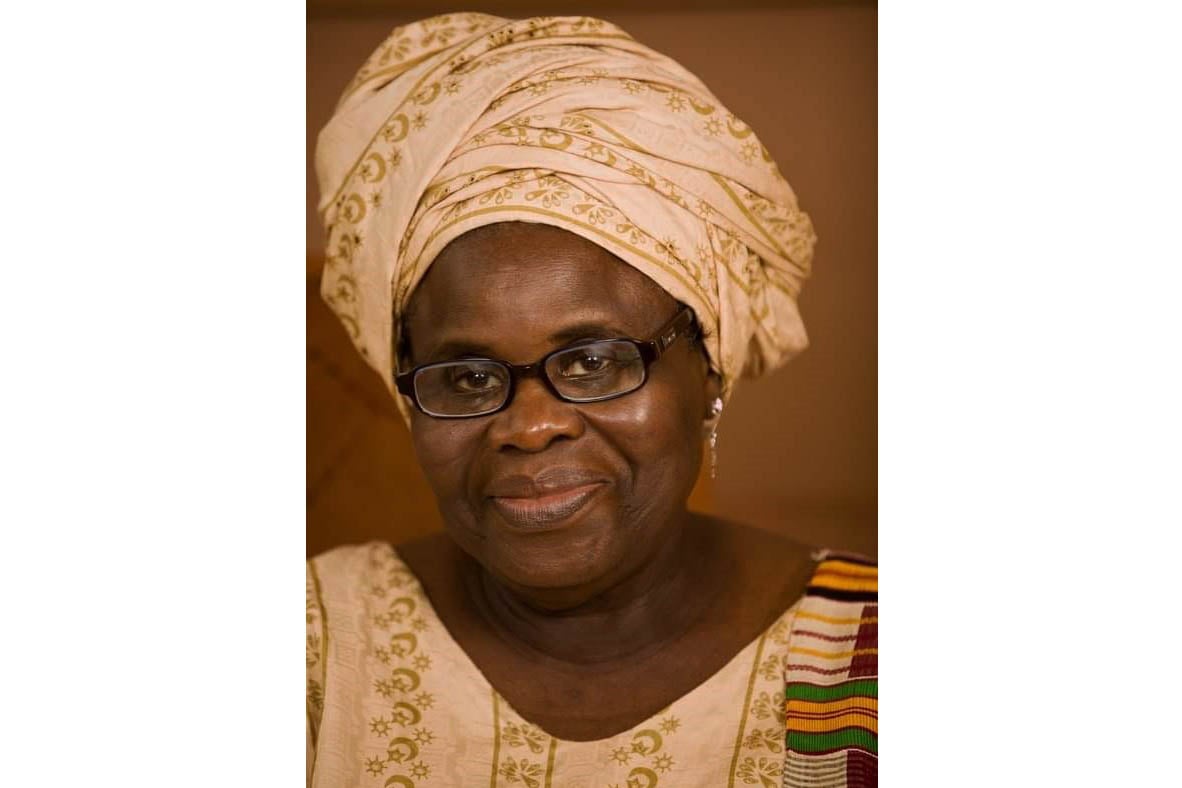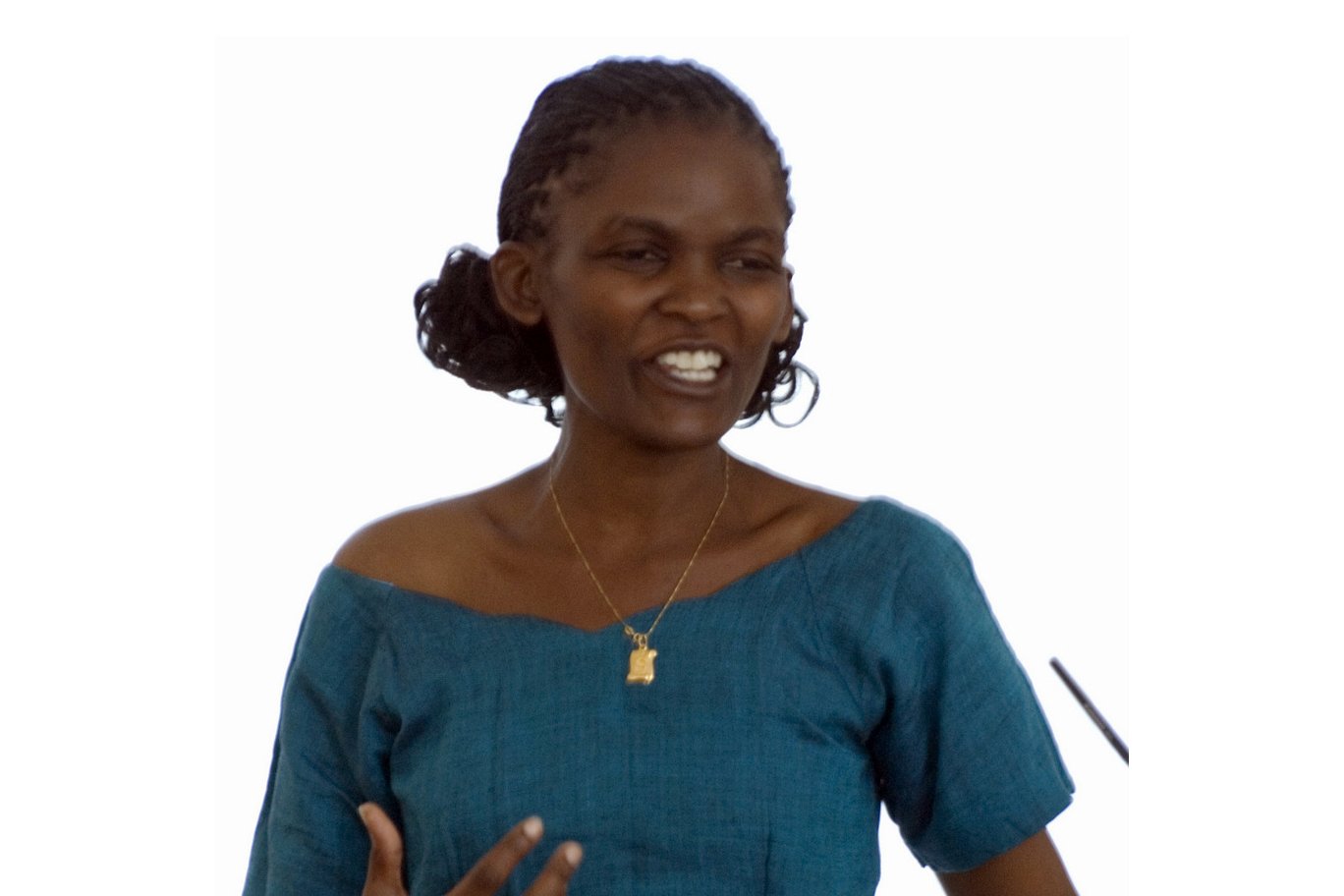Aidoo: Africa prepares to send off literary titan

Prof Ama Ata Aidoo. She was one of the continent’s renowned writers and inspired a generation of younger authors such as Nigeria’s Chimamanda Ngozi Adichie. Photo/ Courtesy
What you need to know:
- Prof Ama Ata Aidoo, a writer, poet, playwright, and academic, who died in May aged 81, will be laid to rest in her native Ghana in the next fortnight.
Africa’s first published African woman dramatist will be laid to rest in her native Ghana in the next fortnight.
Prof Ama Ata Aidoo, who died in May aged 81, shattered the proverbial glass ceiling in 1965 when her first problem play entitled The Dilemma of a Ghost was published.
The body of work is about a Ghanaian student who returns home with his African American wife into the traditional culture and an extended family that he now finds restrictive.
Prof Aidoo, who went on to become one of the continent’s renowned writers, inspired a generation of younger authors such as Nigeria’s Chimamanda Ngozi Adichie. Her influence also stretched into the realm of women empowerment, with a number of feminists citing her lines of argumentation.
A writer, poet, playwright, and academic, Prof Aidoo’s characteristic concern with the “been-to” (African educated abroad) theme proved to be a recurring idea of sorts, figuring in her semi-autobiographical experimental first novel, Our Sister Killjoy, as well as her 1966 work, Reflections from a Black-Eyed Squint.
Hilda J. Twongyeirwe, the executive director of the Uganda Women Writers’ Association commonly known as Femrite, says Prof Aidoo “will forever be remembered for lighting the literary candle for African women writers.”
Twongyeirwe was particularly indebted to Prof Aidoo for her visit to Uganda “even when your health and literary agents could have disagreed at the time”, adding that “the Femrite sisterhood was so lucky to drink from your cup of wisdom, especially when you officiated at our literary celebrations in January 2000.”
As testament to Prof Aidoo’s avant-garde approach to the advocacy of women’s rights, Twongyeirwe reveals that the fallen Ghanaian “taught us to defend ourselves without raising a finger.” This was at the turn of the second millennium, and Prof Aidoo had reacted to a stinging rebuke of one of her works with what Twongyeirwe called a “trademark giggle.”

Susan Nalugwa Kiguli
Susan Nalugwa Kiguli, a poet and a professor of literature at Makerere University’s Literature Department, told Monitor that Prof Aidoo “was and will remain that firm and uncompromising voice on colonialism, decolonisation, education, female empowerment in life and in literary circles.”
Prof Kiguli said of Prof Aidoo: “She was larger than life and there are two voluminous books published by Africa World Press and Ayebia Publishing respectively, which should begin to show you how important she was in the African literary circles worldwide.”
Addressing herself to Prof Aidoo’s works, Prof Kiguli describes Our Sister Killjoy as “a trailblazer [that] ignit[ed] so much debate.” She adds that the novel Changes is “unputdownable” while the lines of poetry in An Angry Letter in January are “magical.”
“She dreamed big for the girl-child and for African literature. It is hard to say anything that would rightly describe Ama Ata Aidoo,” Prof Kiguli told Sunday Monitor in an interview.
Prof Aidoo “was and will remain that firm and uncompromising voice on colonialism, decolonisation, education, female empowerment in life and in literary circles,” Susan Nalugwa Kiguli, literature professor
Prof Aidoo began to write seriously while studying literature at the University of Ghana (B.A., 1964). She lectured at the University of Ghana for years after graduation. She won many literary awards for her novels, plays, short stories, children’s books, and poems. Her works have been read in schools across West Africa.
Prof Aidoo herself won a fellowship to Stanford University in California, returned to teach at Cape Coast, Ghana (1970–82), and subsequently accepted various visiting professorships in the United States and Kenya.
In No Sweetness Here (1970), a collection of short stories, Prof Aidoo exercised the oral element of storytelling, writing tales that are meant to be read aloud.
These stories and Anowa (1970), another problem play, are concerned with Western influences on the role of women and on the individual in a communal society.
Prof Aidoo rejected the argument that Western education emancipates African women.
She further exposed exploitation of women who, as unacknowledged heads of households when war or unemployment leaves them husbandless, must support their children alone.
In 1982–83, Prof Aidoo served as Ghana’s minister of education under Jerry Rawlings’s government. She resigned in disappointment when she saw that she would not be able to make education freely accessible to everyone.
Prof Aidoo published little between 1970 and 1985, until when she released Someone Talking to Sometime (1985), a collection of poetry that won the 1987 Nelson Mandela Prize for Poetry.
She won the 1992 Commonwealth Writers Prize for Best Book (Africa) for Changes: A Love Story (1991), a story about an educated woman navigating the complexities of a polygamous marriage.
Her later titles include: The Eagle and the Chickens (1986); a collection of children’s stories), Birds and Other Poems (1987); Changes: A Love Story (1991); An Angry Letter in January and Other Poems (1992); The Girl Who Can and Other Stories (1997); and Diplomatic Pounds and Other Stories (2012).
Prof Aidoo founded the Mbaasem Foundation in 2000 to support and promote the work of African woman writers. She was a patron of the Etisalat Prize for Literature (alongside Dele Olojede, Ellah Wakatama Allfrey, Margaret Busby, Sarah Ladipo Manyika and Zakes Mda), created in 2013 as a platform for African writers of debut books of fiction.

Hilda J. Twongyeirwe
Prof Aidoo will forever be remembered for lighting the literary candle for African women writers... she taught us to defend ourselves without raising a finger,” Hilda J. Twongyeirwe, Femrite executive director




